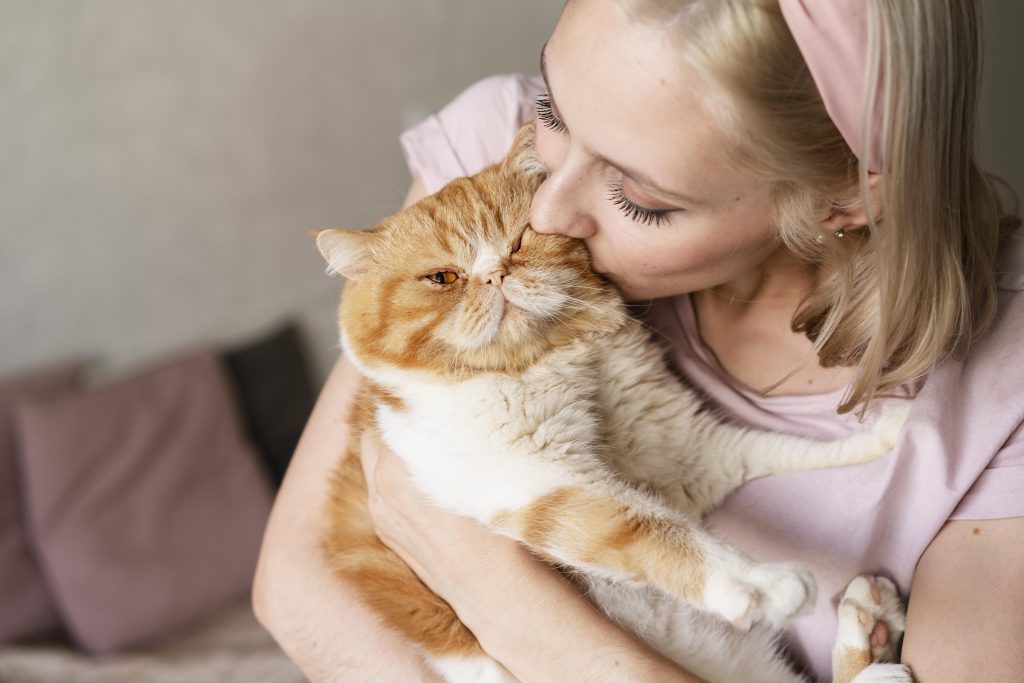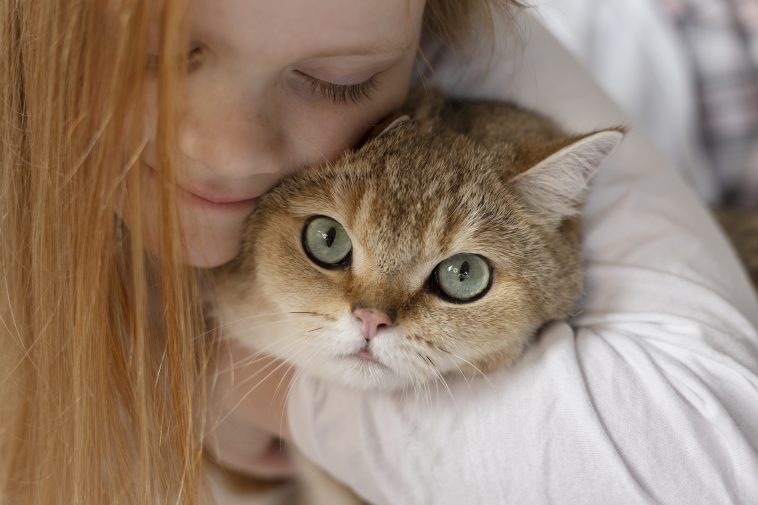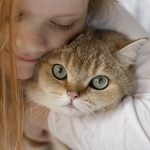Introduction: Ensuring mealtime is a stress-free experience for your cat is essential for their well-being. In multi-cat households, this can pose a challenge, especially if cats have different feeding habits or one exhibits dominant behavior around food. Understanding your cat’s perspective during mealtime is crucial in providing a comfortable dining atmosphere.
Why Cats Feel Vulnerable at Mealtime: Cats naturally feel vulnerable when eating due to their instinctual awareness of potential dangers. In the wild, their focus on food leaves them distracted and exposed. Additionally, the scent of waste near the feeding area could attract predators. These instincts persist in domestic cats, leading to cautious behavior during mealtime.
Expert Tips for a Peaceful Mealtime:

- Strategic Bowl Placement: Avoid positioning food or water bowls near the litter box. Cats prefer separation between their feeding and elimination areas. This practice aligns with their survival instincts and can prevent potential litter box issues.
- Observe Body Language: Pay attention to your cat’s behavior while eating. If they appear anxious, frequently glance around, or seem uneasy, consider finding a more secure dining spot. Some cats may feel safer facing an open area or prefer elevated surfaces.
- Individual Feeding Bowls: In multi-cat households, provide each cat with their own bowl. This ensures that each cat can eat at their own pace and enjoy their preferred food without competition or stress.
- Separate Feeding Spaces: Separating cats during mealtime, especially for more reserved or anxious cats, can promote a peaceful dining experience. Use closed doors if necessary to create a calm and private atmosphere.
- Utilize a Programmable Feeder: Investing in a programmable feeder, like the Surefeed Microchip Pet Feeder, offers a convenient solution. This feeder reads the cat’s microchip to grant access to the food, minimizing conflicts and allowing for individualized feeding schedules.
Case Study: Allegra and Ruby Illustrating the benefits of separate feeding spaces, Allegra and Ruby found contentment when provided their own meal areas. Allegra’s speedy eating contrasted with Ruby’s slower pace, reducing mealtime tensions. By feeding Ruby in a designated space with a closed door, both cats enjoyed their meals without unnecessary stress.
Conclusion: Creating a serene mealtime environment is a thoughtful way to enhance your cat’s overall well-being. By implementing these expert strategies, you can ensure your cat feels comfortable and secure during their dining experience. Understanding your cat’s needs and preferences during mealtime contributes to a happier, healthier feline companion.
Creating a Calm Mealtime Environment for Your Cat: 5 Expert Strategies
Introduction: Ensuring mealtime is a stress-free experience for your cat is essential for their well-being. In multi-cat households, this can pose a challenge, especially if cats have different feeding habits or one exhibits dominant behavior around food. Understanding your cat’s perspective during mealtime is crucial in providing a comfortable dining atmosphere.
Why Cats Feel Vulnerable at Mealtime: Cats naturally feel vulnerable when eating due to their instinctual awareness of potential dangers. In the wild, their focus on food leaves them distracted and exposed. Additionally, the scent of waste near the feeding area could attract predators. These instincts persist in domestic cats, leading to cautious behavior during mealtime.
Expert Tips for a Peaceful Mealtime:

- Strategic Bowl Placement: Avoid positioning food or water bowls near the litter box. Cats prefer separation between their feeding and elimination areas. This practice aligns with their survival instincts and can prevent potential litter box issues.
- Observe Body Language: Pay attention to your cat’s behavior while eating. If they appear anxious, frequently glance around, or seem uneasy, consider finding a more secure dining spot. Some cats may feel safer facing an open area or prefer elevated surfaces.
- Individual Feeding Bowls: In multi-cat households, provide each cat with their own bowl. This ensures that each cat can eat at their own pace and enjoy their preferred food without competition or stress.
- Separate Feeding Spaces: Separating cats during mealtime, especially for more reserved or anxious cats, can promote a peaceful dining experience. Use closed doors if necessary to create a calm and private atmosphere.
- Utilize a Programmable Feeder: Investing in a programmable feeder, like the Surefeed Microchip Pet Feeder, offers a convenient solution. This feeder reads the cat’s microchip to grant access to the food, minimizing conflicts and allowing for individualized feeding schedules.
Case Study: Allegra and Ruby Illustrating the benefits of separate feeding spaces, Allegra and Ruby found contentment when provided their own meal areas. Allegra’s speedy eating contrasted with Ruby’s slower pace, reducing mealtime tensions. By feeding Ruby in a designated space with a closed door, both cats enjoyed their meals without unnecessary stress.
Conclusion: Creating a serene mealtime environment is a thoughtful way to enhance your cat’s overall well-being. By implementing these expert strategies, you can ensure your cat feels comfortable and secure during their dining experience. Understanding your cat’s needs and preferences during mealtime contributes to a happier, healthier feline companion.


